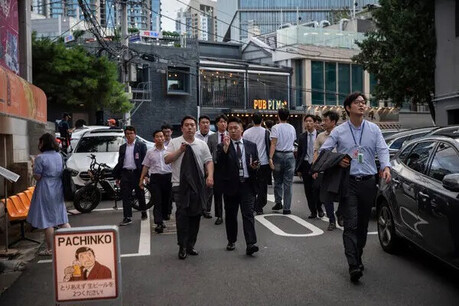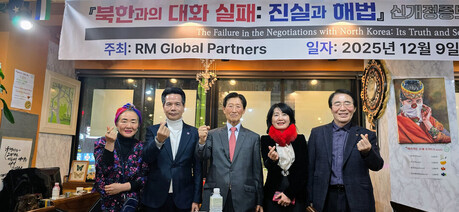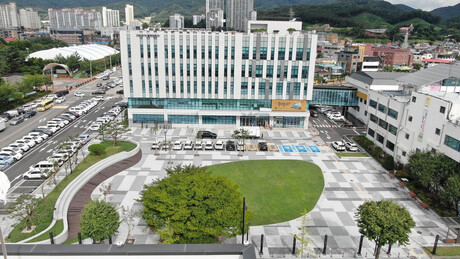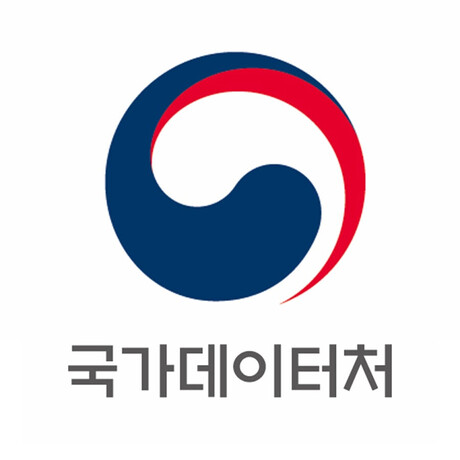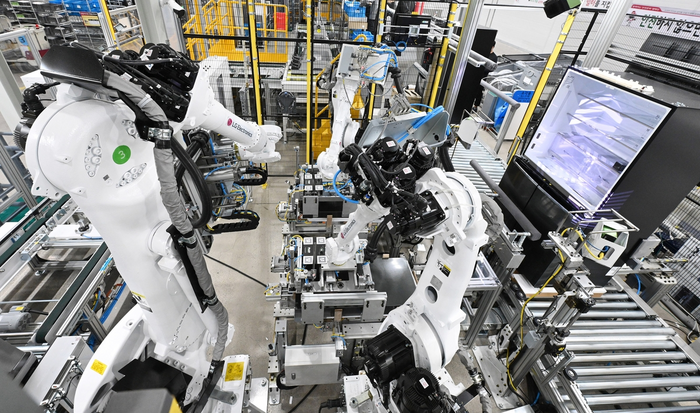
Ulsan, South Korea – President Lee Jae-myung today underscored the pivotal role of regional development in South Korea's high-tech future, emphasizing that advanced industries are not exclusive to the Seoul metropolitan area. His remarks came during a visit to the Ulsan Exhibition and Convention Center for the launch ceremony of the Ulsan Artificial Intelligence (AI) Data Center, marking his first industrial site visit and regional engagement since taking office.
President Lee was joined by prominent industry leaders, including Chey Tae-won,
Chairman of SK Group, Chung Shin-a, CEO of Kakao, and Lee Jun-hee, CEO of Samsung SDS. The President's presence at the event, where he spent approximately two hours engaging in discussions, attending an AI product demonstration, and participating in the launch ceremony, signaled the administration's strong commitment to fostering AI capabilities nationwide. The Presidential Office characterized the event as the "first step towards realizing South Korea as a top-three AI powerhouse."
During the ceremony, President Lee stated, "The successful bid to host a large-scale AI data center in a provincial area holds special significance." He elaborated on his personal commitment to attending the event, saying, "The reason I made time to come here is because this center's establishment seems to be creating new hope for the local economy and industry." He further articulated his vision, asserting, "Going forward, this could serve as a model showcasing that South Korea's high-tech industry is possible not only in the capital region but also in provincial areas."
A "High Pass" for Growth and the AI "Expressway"
President Lee acknowledged the current economic challenges facing South Korea, likening the situation to "crossing a high pass" in the midst of the nation's rapid growth. However, he expressed confidence in the country's ability to overcome these hurdles. "I believe that with the great resilience of our people, we will overcome this crisis and embrace a new era," he said, crediting "the greatness of our entrepreneurs" within the "greatness of our people."
He drew a parallel between the Ulsan AI Data Center and the Gyeongbu Expressway, which was instrumental in South Korea's industrialization success. "Just as the Gyeongbu Expressway led to the success of South Korea's industrialization, starting with the construction of the Ulsan AI Data Center, we will promote private investment through bold tax incentives and regulatory innovation," President Lee pledged. "We will build an 'AI era expressway' that will lead the successful AI transformation of South Korea." This ambitious vision highlights the government's intention to provide a robust infrastructure and supportive policy environment for AI development.
Significant Investment and Corporate Partnership
The Ulsan AI Data Center project is a monumental undertaking, with SK Group and Amazon Web Services (AWS) jointly investing 7 trillion Korean Won (approximately $5.1 billion USD). The facility, boasting a 100-megawatt (MW) capacity, is slated for completion by February 2029 within the Ulsan Mipo National Industrial Complex. This substantial investment is expected to significantly bolster South Korea's AI infrastructure and foster a new ecosystem of innovation in the region.
Industry Requests and Presidential Responsiveness
During the inter-corporate discussion, Chairman Chey Tae-won of SK Group presented a key request to the government, urging it to become a proactive "AI consumer" and drive market demand. Chey suggested that if government agencies actively commission AI applications, it could generate a substantial market of 5 trillion Korean Won (approximately $3.6 billion USD) over five years. "The most useful government support would be for government ministries to commission AI applications and become an AI government," Chey stated, emphasizing the catalytic role public sector demand could play.
President Lee demonstrated his attentiveness by taking notes on the entrepreneurs' policy proposals and directly responding to them. In a notable analogy, he countered the argument against developing "sovereign AI" (AI models developed domestically) by comparing it to questioning why a country like Vietnam, a major rice producer, would engage in agriculture when it could simply import rice. This illustrates his conviction in the strategic necessity of indigenous AI development.
Furthermore, President Lee expressed optimism about the potential for creating startup funds, suggesting that achieving a scale of "10 trillion Korean Won is not an impossible task." He noted that through a "mother fund" (fund-of-funds) structure, the government's financial burden would not be excessively high, indicating a willingness to explore innovative financing mechanisms for AI startups.
Ulsan's Strategic Importance and Local Outreach
President Lee underscored Ulsan's historical and contemporary significance, stating, "Ulsan was the starting point of Korea's industrialization." He expressed his belief that "if Ulsan thrives, the entire local economy of South Korea will thrive." He also shared a personal connection to the city, mentioning, "I am from Andong, Gyeongsangbuk-do, and many people from my hometown also come to Ulsan."
In an unannounced stop, President Lee also visited the Ulsan Eonyang Alps Market. When a merchant pleaded for assistance due to market difficulties, President Lee reportedly responded, "The traditional market will do better now that the supplementary budget of 13 trillion Korean Won has been allocated for consumer coupons." The day before his visit, the government had approved a 20.2 trillion Korean Won supplementary budget during a cabinet meeting chaired by President Lee, further demonstrating the administration's efforts to stimulate the economy, including local markets.
President Lee's visit to Ulsan and his strong endorsement of the AI data center initiative signal a strategic shift towards decentralizing high-tech development and fostering innovation across all regions of South Korea. The government's commitment, coupled with substantial private investment, positions Ulsan as a crucial hub in the nation's ambitious quest to become a global leader in artificial intelligence.
[Copyright (c) Global Economic Times. All Rights Reserved.]

















